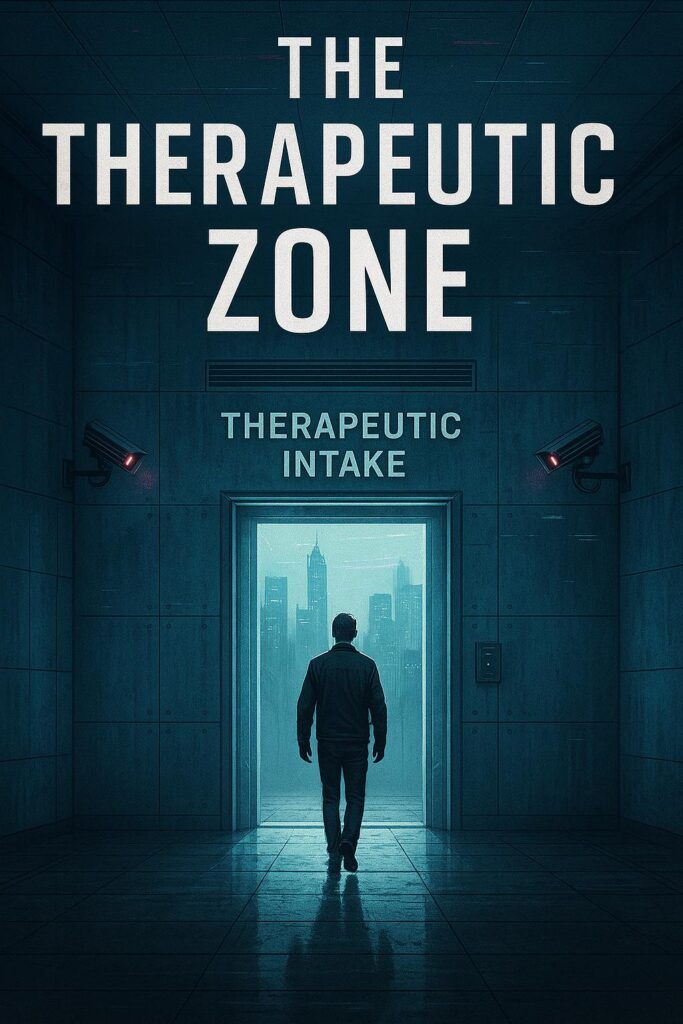
Reflections on Life as a Disability Pensioner Under a Welfare System That Prefers Quiet Compliance Over Real Independence
Living on a disability pension in Australia today isn’t just about money—it’s about control. Wrapped in nice words like “support,” “case management,” and “wellbeing,” life under the therapeutic state offers stability—if you play by the unspoken rules.
The message is clear: Stay small. Stay safe. Stay in line.
But what if you want more than safety? What if your idea of wellbeing doesn’t involve giving up your independence for the comfort of being managed?
Let’s talk about what life is really like when you’re a disability pensioner in a system that rewards quiet compliance and punishes ambition.
Contents
- 1 What is the Therapeutic State?
- 2 Stay Small, Stay Safe
- 3 Welfare Disguised as Surveillance
- 4 Independence is Pathologized
- 5 Psychological Compliance as Currency
- 6 Disability as a Public Performance
- 7 Surveillance in the Name of Safety
- 8 “Wellness” Is the New Obedience
- 9 Real Independence Is Treated With Suspicion
- 10 Living With Dignity Means Pushing Back
- 11 The Cost of Being “Difficult”
- 12 Final Thoughts: From Managed to Empowered
- 13 Related Articles
- 14 “The Therapeutic Zone” to purchase click here
What is the Therapeutic State?
The therapeutic state doesn’t come at you with batons or boots. It comes softly, with clipboards and “client plans.”
Coined by social critics decades ago, the term refers to a state that controls its citizens not through direct force, but through psychological and medical frameworks. In this model, non-compliance becomes pathology, and obedience is rebranded as wellbeing.
You’re not locked up for dissent—you’re simply “reassessed,” “referred,” or “case reviewed.”
Stay Small, Stay Safe
For disability pensioners, this mindset starts early. From the first interaction with Centrelink or the NDIS, you’re categorized, documented, and assigned a care pathway.
Want to launch a small business? You’ll have to report your income in triplicate and risk losing your payment.
Want to change providers or question your treatment plan? Prepare for delays, red tape, and condescending lectures about what’s “appropriate” for someone with your condition.
The message? Don’t rock the boat. Don’t push the boundaries. Be grateful. Stay small.
Welfare Disguised as Surveillance
On paper, the NDIS and the broader disability support system are incredible achievements. But in practice, they’ve become bloated bureaucracies obsessed with measurement, metrics, and management.
Every support plan becomes a data file. Every hour of care must be justified. Every goal must be “reasonable and necessary”—according to someone else’s criteria.
You’re watched. Assessed. Audited.
And if you express frustration or refuse a service, you’re suddenly “non-compliant” or “deteriorating.”
Independence is Pathologized
Here’s the cruel irony: the more independent you try to be, the more resistance you face.
Say you don’t need a support worker five days a week. Say you want to study part-time or work casually. Say you’re mentally unwell but still capable of making decisions about your life.
What do you get?
Raised eyebrows. Red flags. Risk assessments.
The system prefers you passive, predictable, and dependent.
Because independence isn’t the goal. Manageability is.

Psychological Compliance as Currency
Every form, every assessment, every meeting with a case manager is a test:
- Are you compliant?
- Are you grateful?
- Are you willing to accept the decisions made for you?
If you say the right things—”I’m coping,” “I’m grateful,” “I trust the system”—you’re labeled stable.
But start asking uncomfortable questions—”Why was my therapy cut?” “Why can’t I switch providers?” “Why is my housing unsafe?”—and suddenly you’re flagged.
Your self-advocacy is seen as a symptom, not a strength.
Disability as a Public Performance
To get approved for a disability pension, you must prove—again and again—that you’re sick enough, limited enough, needy enough.
You must perform your disability to the satisfaction of bureaucrats, doctors, and review panels who likely don’t know you and don’t care.
This leads to a twisted incentive system:
- Don’t improve too much.
- Don’t act too confident.
- Don’t show too much independence.
Because in the therapeutic state, progress is a threat to your eligibility.
Surveillance in the Name of Safety
You’re not just monitored by paperwork. You’re tracked digitally, too:
- Your Medicare usage
- Your mental health appointments
- Your NDIS purchases
- Your income declarations
- Even your social media presence if you speak out
All of it forms a data profile—used to evaluate your “risk,” not your resilience.
What begins as care becomes surveillance. And what starts as support becomes subtle coercion.
“Wellness” Is the New Obedience
Today’s system doesn’t punish with prisons—it punishes with programs.
You’re nudged into “wellbeing initiatives.” You’re encouraged to attend “emotional regulation workshops.” You’re offered “mindfulness training” for trauma you haven’t had time to process.
Meanwhile, your rent’s overdue, your support worker hasn’t shown up in a week, and you haven’t spoken to a real human being at Centrelink since 2019.
Wellness becomes a smokescreen—a way to blame you for the trauma caused by the system.
Real Independence Is Treated With Suspicion
Try applying for a business loan while on a disability pension. Try renting without a full-time job. Try saying, “I don’t want another psych referral, thanks.”
At best, you’re ignored. At worst, you’re seen as unstable.
In the eyes of the system, the best disability pensioner is a compliant one.
The worst? A rebel with a laptop and a strong opinion.
And yet, independence is the one thing most disabled people are fighting for.
Living With Dignity Means Pushing Back
Dignity doesn’t come from permission slips. It comes from agency.
That might mean:
- Refusing unnecessary treatments
- Speaking out about abuse or neglect
- Starting a creative project or side hustle
- Choosing solitude over group activities
- Saying “no” without having to explain your trauma history
But pushing back takes energy—something the system slowly drains from you. That’s why many just give up and go quiet.
The Cost of Being “Difficult”
Once you’re labeled “difficult,” good luck.
You may face:
- Service delays
- Provider refusals
- Misdiagnosis
- Loss of funding
- Forced medication or reassessment
All because you asked the wrong question or said, “Actually, I disagree.”
In the therapeutic state, silence is safe. Disruption is dangerous.
Final Thoughts: From Managed to Empowered
As a disability pensioner, I’ve learned to navigate a system designed more to control than to uplift.
But I refuse to disappear into the cracks.
I will not stay small to stay safe.
I will not trade freedom for predictability.
I will not confuse silence with wellbeing.
The real revolution isn’t in shouting—it’s in living with dignity, speaking with clarity, and refusing to let systems write our stories for us.
✊ Let’s Flip the Script
- 💬 Have you experienced the invisible pressure to conform under the disability system? Share your story in the comments.
Related Articles
“The Therapeutic Zone” to purchase click here
“The Therapeutic Zone” is One Flew Over the Cuckoo’s Nest meets 1984 — a chilling psychological thriller set five years from now in a quiet Australian suburb turned open-air asylum. When Jack Frawley checks in for short-term care, he discovers he’s not a patient — he’s a prisoner in a system where therapy becomes surveillance, and compliance means survival. As reality unravels, three unlikely residents plan their escape from a government-backed “care zone” that’s anything but healing. This gripping novel explores the thin line between treatment and control, and what happens when society decides who is too broken to be free.







Oh, what to say here? This piece is deeply unsettling — and powerfully written. The Orwellian undertones are unmistakable, The idea that therapeutic systems, originally designed to heal, can morph into mechanisms of control and compliance is chilling. What stands out is the framing of “stay small, stay safe” — a mantra that subtly discourages autonomy, ambition, and dissent under the guise of care. And after all we (the public) are expecting all of this (very expensive) care to bring autonomy etc for the recipient.
My father underwent an experience like you describe late in life. I can authoritatively state that when lived experience intersects with institutional rigidity, the emotional toll can be immense – on the patient and the family. This post’s critique of over-medicalization and bureaucratic oversight raises urgent questions about dignity, agency, and the ethics of enforced wellness.
It’s a tough read, but an important one.
MarkA